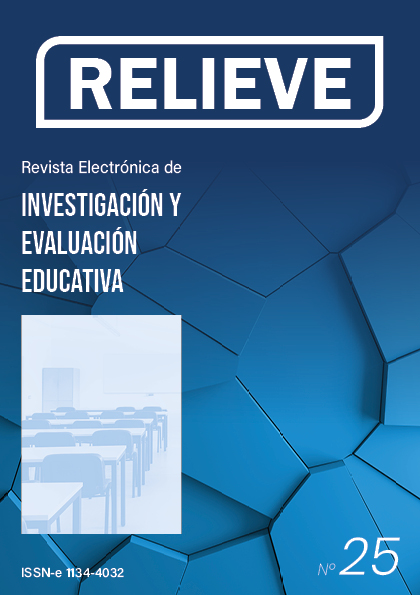Validation of a questionnaire of attributions to the detection of coincidences in academic work.
DOI:
https://doi.org/10.7203/relieve.25.1.13599Keywords:
Validation, factorial analysis, plagiarism, university students, dishonest practicesAbstract
Plagiarism as a topic of research in the university context has not ceased to be a constant concern due to its multiple repercussions. This paper describes the process followed in the validation of the Questionnaire of attributions for the detection of coincidences in academic works (CUDECO), whose purpose is to evaluate the relevance that to cite correctly and to detect the causes that lead to commit plagiarism. From a sample of 2,331 students, an analysis of reliability as internal consistency and an exploratory factorial analysis (AFE) of the instrument is carried out. The analysis of reliability leads to propose a readjustment in the questionnaire initially designed. The factorial study suggests a structure configured by five factors: concept of plagiarism and its types (partial and total), causes that motivate the commission of it both internal (specific to the subject) and external (outside the subject) and the attitudes of the peer group towards plagiarism, findings in the line of research previous
Downloads
Downloads
Published
How to Cite
Issue
Section
License
The authors grant non-exclusive rights of exploitation of works published to RELIEVE and consent to be distributed under the Creative Commons Attribution-Noncommercial Use 4.0 International License (CC-BY-NC 4.0), which allows third parties to use the published material whenever the authorship of the work and the source of publication is mentioned, and it is used for non-commercial purposes.
The authors can reach other additional and independent contractual agreements, for the non-exclusive distribution of the version of the work published in this journal (for example, by including it in an institutional repository or publishing it in a book), as long as it is clearly stated that the Original source of publication is this magazine.
Authors are encouraged to disseminate their work after it has been published, through the internet (for example, in institutional archives online or on its website) which can generate interesting exchanges and increase work appointments.
The fact of sending your paper to RELIEVE implies that you accept these conditions.














